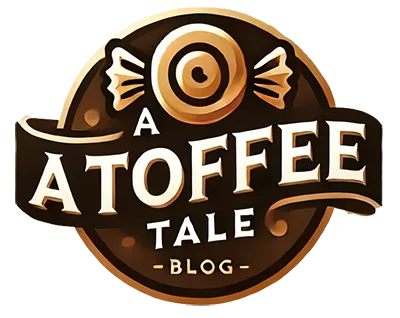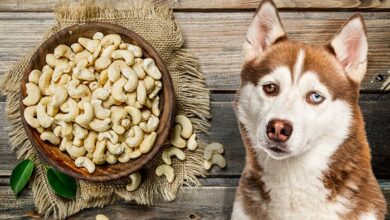Can Dogs Eat Honey Buns? Safe or Harmful for Your Pup?

Can Dogs Eat Honey Buns? To help answer this, let’s first understand what honey buns are. These popular pastries are sweet and sticky treats, commonly enjoyed as snacks or desserts. They’re made with refined flour, sugar, honey, and butter.
Honey buns are often glazed with icing, which adds extra sugar and fat. While these treats might be tempting for us, they’re not the best choice for your dog. In this article, we’ll dive into why honey buns can be harmful to dogs and offer some healthier options to keep your pup happy and healthy. So, let’s explore together that- can dogs eat honey buns?
Are Honey Buns Safe for Dogs?
Can Dogs Eat Honey Buns? Honey buns are not safe for dogs. Here’s why:
High Sugar Content
- Weight Gain: The high sugar content in honey buns can lead to unhealthy weight gain and obesity.
- Diabetes: Regular consumption of sugary foods increases the risk of developing diabetes in dogs.
- Dental Issues: Excessive sugar can contribute to dental problems, including cavities and gum disease.
Excessive Fat
- Risk of Pancreatitis: The high fat content can cause inflammation of the pancreas, known as pancreatitis, which is painful and serious.
- Obesity: Consuming fatty foods regularly can lead to significant weight gain and related health issues.
Artificial Ingredients
- Preservatives: Some preservatives used in honey buns can be harmful to dogs and may lead to toxic reactions.
- Artificial Flavors and Colorings: These ingredients can cause allergic reactions or other adverse effects in sensitive dogs.
Low Nutritional Value
- Empty Calories: Honey buns provide no beneficial nutrients for dogs, only empty calories that don’t contribute to their health.
Can Dogs Eat Honey Buns? Given these factors, honey buns are not a suitable treat for dogs. Opt for dog-friendly snacks that offer nutritional benefits and are safe for your pet’s health.
Immediate Health Risks of Eating Honey Buns
Can Dogs Eat Honey Buns? If a dog eats a honey bun, there are several immediate health risks to be aware of:
Digestive Upset
- Vomiting: The rich, sugary content can irritate your dog’s stomach, leading to vomiting.
- Diarrhea: High sugar and fat content might cause diarrhea or loose stools.
- Stomach Discomfort: Your dog may experience general discomfort or bloating due to the unfamiliar ingredients.
Blood Sugar Spikes
- Energy Spikes: The high sugar content can cause a sudden burst of energy.
- Crashes: This might be followed by a rapid drop in energy, leading to lethargy or fatigue.
Allergic Reactions
- Ingredient Sensitivities: Some dogs may have adverse reactions to artificial additives or preservatives.
- Symptoms: Look out for signs like itching, hives, or other allergic responses.
Can Dogs Eat Honey Buns? While a single honey bun might not be catastrophic, it can lead to these immediate health issues. It’s best to monitor your dog closely and consult with a veterinarian if you notice any troubling symptoms. For healthier treat options, stick to dog-safe snacks that support your pet’s overall health.
Long-Term Health Consequences-Can Dogs Eat Honey Buns?
Can Dogs Eat Honey Buns? While a single honey bun might not cause immediate harm, regular consumption can lead to several long-term health consequences:
Obesity
- Unhealthy Weight Gain: The high-calorie content of honey buns can lead to significant weight gain over time.
- Associated Issues: Obesity in dogs can result in joint problems, decreased mobility, and other health issues.
Diabetes
- Increased Risk: Continuous intake of sugary foods can elevate blood sugar levels and increase the risk of diabetes.
- Management Challenges: Diabetes requires careful management and can significantly impact your dog’s quality of life.
Pancreatitis
- Inflammation of the Pancreas: The high-fat content in honey buns can trigger pancreatitis, a serious and painful condition.
- Symptoms and Treatment: Pancreatitis often requires medical treatment and can involve symptoms like severe abdominal pain and vomiting.
Dental Problems
- Cavities: Frequent exposure to sugar can cause cavities and tooth decay.
- Gum Disease: High sugar intake can also contribute to gum disease and other dental issues, leading to discomfort and potential tooth loss.
Can Dogs Eat Honey Buns? The long-term health risks make honey buns an unsuitable treat for dogs. Opt for dog-friendly snacks that are both safe and beneficial for your pet’s overall health.
What to Do If Your Dog Eats a Honey Bun?
Can Dogs Eat Honey Buns? If your dog happens to eat a honey bun, it’s important to take certain steps to ensure their well-being:
Stay Observant
- Monitor for Symptoms: Watch for any signs of distress, such as vomiting, diarrhea, or changes in behavior.
- Note Changes: Keep an eye out for unusual behavior or physical symptoms that might indicate discomfort.
Contact Your Veterinarian
- Seek Professional Advice: If your dog shows symptoms like vomiting or lethargy, contact your veterinarian for guidance.
- Follow Recommendations: Your vet can provide specific advice and treatment options based on your dog’s condition.
Ensure Hydration
- Provide Water: Make sure your dog has access to fresh water, especially if they are experiencing stomach upset.
- Encourage Drinking: Keeping your dog hydrated is crucial, as it helps to flush out any toxins and prevents dehydration.
Prevent Future Access
- Store Safely: Keep honey buns and similar treats out of your dog’s reach to prevent future incidents.
- Educate Household Members: Ensure everyone in the household is aware of the risks and avoids giving your dog inappropriate foods.
Can Dogs Eat Honey Buns? It’s best to avoid giving honey buns to dogs and ensure they only consume treats that are safe and healthy for their specific dietary needs.
Healthy Treat Alternatives for Your Dog
Can Dogs Eat Honey Buns? Instead of honey buns, consider these healthy treat alternatives for your dog:
Dog-Specific Treats
- Low in Sugar and Fat: Choose treats specifically formulated for canine health, avoiding excess sugar and fat.
- Nutritionally Balanced: These treats are designed to provide beneficial nutrients and support your dog’s well-being.
Fresh Fruits
- Safe Options: Offer small portions of apples (without seeds), blueberries, or watermelon as a natural, sweet treat.
- Moderation: Always serve fruits in moderation and avoid those that are toxic to dogs, like grapes and raisins.
Vegetables
- Healthy Snacks: Carrots, cucumber slices, and green beans are crunchy and nutritious options.
- Low in Calories: These vegetables are low in calories and high in fiber, which is good for your dog’s digestive health.
Homemade Dog Treats
- Dog-Friendly Ingredients: Make treats using safe ingredients like oats, pumpkin, and peanut butter (ensure it’s xylitol-free).
- Customizable: Homemade treats allow you to control the ingredients and avoid harmful additives.
Can Dogs Eat Honey Buns? Instead of honey buns, opt for these healthier alternatives that support your dog’s health and well-being.




